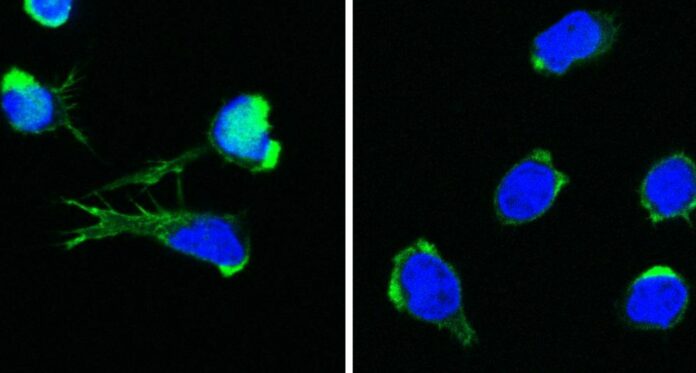As part of a quest to decipher the mysterious symptoms affecting four children, a team of scientists from St. Anna Children’s Cancer Research Institute, the CeMM Research Center for Molecular Medicine of the Austrian Academy of Sciences (ÖAW), and the Medical University of Vienna have unearthed an entirely novel disease.
This disease intertwines disruptions in blood formation, immune response, and inflammation. This pioneering discovery lays the groundwork for enhanced comprehension of analogous conditions. The researchers’ significant achievement has recently been featured in the esteemed international publication, the New England Journal of Medicine.
The researchers have pinpointed a novel anomaly in the DOCK11 gene, leading to irregularities in both white and red blood cells.
“Such rare and previously unknown diseases provide valuable insights into the fundamental principles of blood formation and the immune system. They allow us to better understand the dysregulated processes underlying these diseases,” adds senior author Kaan Boztug.
The genetic aberration was initially discovered in a young patient from Spain, who suffered severe inflammation in various organs, including kidneys, intestines, and skin, without any identifiable cause despite numerous tests. The attending physician reached out to the St. Anna CCRI with the patient’s blood samples. This move proved successful. The globally renowned center for rare disorders related to blood formation and the immune system identified the root cause.
“We work closely with international partner institutions to understand such diseases and help the patients,” adds Boztug.
Three additional patients with variants in the same gene
The patient’s genome sequencing revealed a severe defect in the DOCK11 gene, a gene that had not been previously associated with any human disease and is involved in cell communication.
“Initially, we had only one patient and therefore did not know which symptoms were related to the gene defect and which were just additional accompanying manifestations. That was quite a challenge,” says Jana Block, first author of the publication and a PhD student in Boztug’s research group at St. Anna CCRI and CeMM.
Through their international collaborations, the researchers managed to find additional patients with similar DOCK11 mutations, which helped provide a clearer understanding of the disease.
DOCK11 controls blood formation
One of the patients suffered from a significantly reduced number of red blood cells and required regular blood transfusions.
“Anemia often occurs with immune deficiencies, and often, a person’s own red blood cells are destroyed by autoantibodies that target their own blood cells. In healthy people, however, this does not happen,” says Jana Block. “However, in our investigations, we did not find such autoantibodies.”
The cause of the decreased number of red blood cells was clarified by the researchers using a zebrafish model. The DOCK11 defect resulted in impaired blood cell formation, leading to a novel mechanism for anemia, a deficiency of red blood cells.
DOCK11 keeps T cells in check
The role of DOCK11 in humans was, until now, unexplored; previous studies had shown the importance of the protein for the development of B cells in mouse models. The researchers have now shown that to a certain extent B cells also do not develop properly in humans with DOCK11 deficiency, and at the same time, other immune cells, called T lymphocytes, are overactivated.
“The protein appears to play a role in keeping the activation of T cells within a certain range,” explains Block.
This is important because overactivation can lead to damage to surrounding tissues and organs, especially in the absence of an actual pathogen. A connection between T-cell defects and predisposition to tumor diseases is observed in other immune deficiencies and cannot be ruled out in the case of DOCK11 deficiency.
“We will certainly investigate this question further in our research,” says Boztug.
Stem cell transplantation as a possible treatment
Although not all details of DOCK11’s function are yet understood, the researchers suspect that transplantation of blood-forming stem cells could cure the disease.
“Of course, these questions need to be investigated in future studies. It is also conceivable that DOCK11 deficiency could be treated through gene therapy,” says Boztug.
The fact that there is now hope for the development of therapies has a very special significance for the scientists: “Our work over the past five years is undoubtedly a significant milestone, but we are also aware that several of the patients have died from the disease,” says Block.
The researcher hopes that now other centers will become aware of this gene mutation and further advance the exploration of this disease.
“This disease is truly severe, so we see it as our mission not only to understand the biological processes but also to develop effective therapeutic strategies based on that,” adds Boztug.
Source: 10.1056/NEJMoa2210054
Image Credit: St. Anna Children’s Cancer Research Institute
